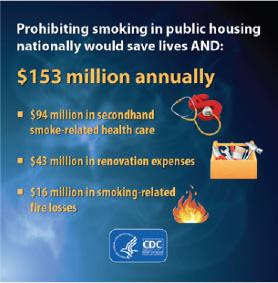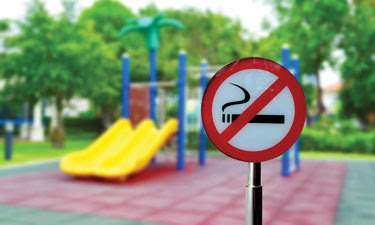Nebraska Tobacco Quitline Offers No-Cost Nicotine Replacement
New Year’s Resolutions are just around the corner and for people who want to quit smoking or other forms of tobacco it can be a time for optimism and hope for a tobacco-free life.
To provide extra motivation and support during the quit season, the Nebraska Tobacco Quitline is offering, at no cost to callers, a two-week supply of nicotine gum, patches or lozenges to any Nebraska resident over the age of 18 who is ready to quit tobacco. Medication will be mailed directly to the caller’s home.
In order to take advantage of this no-cost offer, tobacco users must:
- register with the Nebraska Tobacco Quitline by calling 1-800-QUIT-NOW (784-8669)
- complete one coaching session with a trained Quit Coach
- be medically eligible to receive the medication
This offer is available now, through January 31, 2017, while supplies last. The Quitline is available 24/7 in more than 170 languages.
For more information call 1-800-QUIT-NOW (784-8669)
In Spanish: 1-855-DEJELO-YA (335-3569)
Or Visit: QuitNow.ne.gov

United States Surgeon General Releases Report on Electronic Nicotine Devices
A new U.S. Surgeon General’s report, released on December 8, raises public health concerns about e-cigarette use among youth and young adults in the United States. It is the first comprehensive federal review of the public health impact of e-cigarettes on youth and young adults. In addition to documenting the evidence on the health risks of e-cigarettes among young people, the report describes industry influences on e-cigarette use and outlines potential actions to prevent youth and young adults from the harms of e-cigarette use.
There is a host of materials available to help address questions that arise around e-cigarettes. Some of these educational resources can be found here:
Executive Summary: summarizes the major content of the report.
Full Report: the first Surgeon General’s report focusing on the use of e-cigarettes by youth and young adults.
Fact Sheet: provides an overview of the key findings and messages from the report.
Tip Sheet for Parents: talk with your teen about e-cigarettes.
Public Service Announcement from the Office of the U.S. Surgeon General
New Rule on Smoke-free Public Housing Announced
The United States Department of Housing and Urban Development (HUD) released its final smoke-free rule for public housing on November 30. The new rule requires Public Housing Authorities to implement smoke-free policies in all public housing properties within the next eighteen months.
In addition to the health benefits of smoke-free living, HUD’s smoke-free rule will reduce damage and maintenance costs associated with smoking. According to the Centers for Disease Control and Prevention (CDC), HUD’s national smoke-free policy will save public housing agencies $153 million every year in repairs and preventable fires, including $94 million in secondhand smoke-related health care, $43 million in renovation of smoking-permitted units, and $16 million in smoking-related fire losses.
For more information, read HUD’s press release or the final ruling.

Warning Letters Sent to Four Tobacco Product Manufacturers
The United States Food and Drug Administration (FDA) has issued warning letters to four tobacco manufacturers-Swisher International Inc., Cheyenne International LLC, Prime Time International Co., and Southern Cross Tobacco Company, Inc. for selling flavored cigarettes that are labeled as little cigars or cigars, which is a violation of the Family Smoking Prevention and Tobacco Control Act (TCA).
The companies received warning letters for products under the “Swisher Sweets,” “Cheyenne,” “Prime Time,” and “Criss-Cross” brands in a variety of youth-appealing flavors, including grape, cherry, wild cherry, and strawberry. The FDA determined that, although labeled as little cigars or cigars, the products meet the definition of cigarettes in the TCA, because they are likely to be offered to, or purchased by, consumers as cigarettes based on their overall presentation, appearance, and packaging and labeling.
To learn more or to read the warning letters, go here.
Tobacco Free Parks Encouraged by National Board
In an effort to recognize park and recreation’s growing responsibility in promoting healthy communities, the National Recreation and Park Association (NRPA) Board of Directors adopted a statement in the summer of 2016, encouraging the establishment and maintenance of tobacco-free facilities. This decision by NRPA’s leadership protects the health of parks’ workforce, visitors and the environment while aligning with the views of forward-thinking cities, states and public health officials.
The American Nonsmokers’ Rights Foundation reports that, as of October 1, 2016, more than 1,290 municipalities have tobacco-free park laws on the books, including large cities like Boston, Los Angeles and Houston as well as smaller towns like Jasper, AL, Sylvania, OH and Wellington, CO.

Tobacco Consumption Varies by Type Over Past Fifteen Years
During 2000-2015, total combustible tobacco consumption decreased 33.5%. Although total cigarette consumption decreased 38.7%, cigarettes remained the most commonly used combustible tobacco product. Notably, total cigarette consumption was 267.0 billion cigarettes in 2015 compared with 262.7 billion in 2014, or seven more cigarettes per capita.
Consumption of noncigarette combustible tobacco (cigars, roll-your-own, pipe tobacco) increased 117.1%, or 83.8% per capita, during 2000-2015.
During 2000-2015, total smokeless tobacco consumption increased 23.1%, or 4.2% per capita. However, chewing tobacco and snuff consumption patterns diverged; total chewing tobacco consumption decreased 55.8% from 45.6 to 20.2 billion pounds, whereas total snuff consumption increased 77.5% from 66.2 to 117.4 billion pounds.
Read more about this topic in the Centers for Disease Control and Prevention’s Morbidity and Mortality Weekly, December 9, 2016.
Tips for Quitting Dip
Many people find that quitting dip is harder than they thought. It takes determination to quit dip and stay tobacco free.
Dip contains more nicotine than cigarettes and the nicotine in dip stays in your blood longer than nicotine from smoking. This can make it more difficult to quit. Holding an average-size dip in your mouth for 30 minutes gives you as much nicotine as smoking three cigarettes. A two-can-a-week dipper gets as much nicotine as a 1-1/2 pack-a-day smoker.

Helpful resources for individuals who want to give up any form of tobacco, but especially dip or snuff:
Smokefree.gov, a website with helpful tips about how to “Skip the Dip.” The Nebraska Tobacco Quitline is not just for smokers, but can help chewing tobacco users as well. It’s free, available 24/7 and trained Quit Coaches will help callers develop a personalized quit plan. Call 1-800-QUIT-NOW (784-8669). Spanish speakers can call 1-855-DEJELO-YA (335-3569). QuitNow.ne.gov
Did You Know?
Download this Infographic to learn more about special populations disproportionately affected by tobacco use.
Tobacco Free Nebraska is Wishing You….

Upcoming Events
[column column=”one_third”] TFN State Coalition Meeting
January 25, 2017 | Lincoln
Cornhusker Marriott Hotel, 333 South 13th Street, Lincoln. 11:30 a.m. to 2:00 p.m. More information to come.[/column]
[column column=”one_third”] Campus Initiative Grants Available
American Cancer Society | February 28 Deadline
The American Cancer Society Tobacco-Free Generation Campus Initiative has grants available for colleges and universities dedicated to 100% smoke-free or tobacco- free initiatives. Grant guidelines available here.[/column]
[column column=”one_third” last=”true”] 2017 National Conference on Tobacco or Health
March 22-24, 2017 | Austin, TX
The premier gathering of the United States Tobacco Control Movement. Registration deadline is February 27, 2017. Early registration is recommended and available here.[/column]
|
Quick Links |
